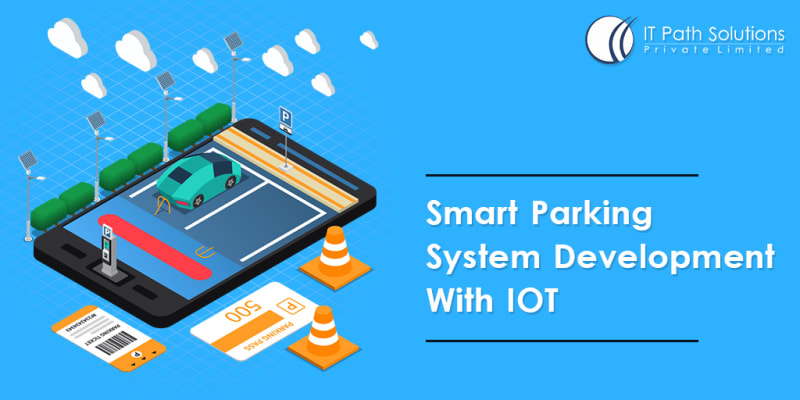In the fast-paced world of urbanization, finding a parking spot can be a daunting task. However, as technology continues to weave its magic into our daily lives, the development of Smart Parking Systems utilizing the Internet of Things (IoT) is poised to transform the way we approach parking. In this in-depth exploration, we delve into the latest trends in Smart Parking System development, shedding light on the exciting possibilities that arise from the synergy of IoT and app development.
The Essence of Smart Parking Systems
IoT's Pivotal Role
At the heart of the Smart Parking System revolution is the Internet of Things (IoT), a network of interconnected devices that communicate and share data seamlessly. IoT enables sensors and cameras to be strategically placed in parking lots, gathering real-time information on parking space availability. This data is then processed and relayed to a dedicated mobile application, providing users with accurate and up-to-date parking availability information.
Real-time Insights and Convenience
Imagine cruising through a bustling city, guided by a smart app that not only navigates you to the nearest parking space but also updates in real-time, ensuring you never waste a moment searching for an available spot. Smart Parking Systems bring convenience to urban living, reducing stress and enhancing the overall parking experience.
Latest Trends in Smart Parking System Development
Integration of Machine Learning
The integration of machine learning algorithms is a game-changer in Smart Parking System development. These algorithms analyze historical data, user preferences, and traffic patterns to predict parking space availability accurately. This proactive approach ensures a smoother parking experience for users.
Mobile App Development for Seamless User Interaction
IoT app development plays a crucial role in enhancing user interaction with Smart Parking Systems. Intuitive mobile applications allow users to reserve parking spaces, receive real-time updates, and even pay for parking seamlessly. The emphasis is not just on providing a parking solution but delivering a holistic and user-friendly experience.
Sustainability through IoT
Smart Parking Systems contribute to sustainability efforts by optimizing traffic flow, reducing carbon emissions, and minimizing the time spent circling for parking. The integration of IoT enables the collection of valuable data, allowing city planners to make informed decisions for a more eco-friendly urban environment.
Exploring the Future of Smart Parking Systems
Autonomous Vehicles and Smart Parking
As we look to the future, the rise of autonomous vehicles will further accentuate the need for Smart Parking Systems. These advanced parking solutions will seamlessly integrate with autonomous vehicles, ensuring efficient and secure parking for self-driving cars.
IoT App Development: A Growing Industry
The evolution of Smart Parking Systems highlights the growing demand for IoT app development. Businesses and developers are increasingly recognizing the potential of IoT in creating innovative solutions that address urban challenges. The synergy between IoT and app development opens doors to endless possibilities, not only in parking systems but in various other domains.
Frequently Asked Questions (FAQs)
Q1: How does IoT improve the accuracy of parking space availability?
A1: IoT employs sensors and cameras in parking lots to gather real-time data on space availability. This information is then processed and relayed to a dedicated mobile application, ensuring users have accurate and up-to-date parking information.
Q2: Can Smart Parking Systems be integrated with existing navigation apps?
A2: Yes, Smart Parking Systems can be seamlessly integrated with existing navigation apps, providing users with a comprehensive solution for navigating to and securing parking spaces.
Q3: How do machine learning algorithms contribute to Smart Parking Systems?
A3: Machine learning algorithms analyze historical data, user preferences, and traffic patterns to predict parking space availability. This predictive analysis enhances the accuracy of Smart Parking Systems, ensuring users find parking spaces more efficiently.
Q4: Are Smart Parking Systems only beneficial for drivers of traditional vehicles?
A4: No, Smart Parking Systems are designed to benefit all types of vehicles, including traditional, electric, and autonomous vehicles. The system is adaptable to the evolving landscape of transportation.
Q5: How do Smart Parking Systems contribute to sustainability efforts?
A5: Smart Parking Systems optimize traffic flow, reduce carbon emissions, and minimize the time spent searching for parking. By creating a more efficient parking experience, these systems contribute to the overall sustainability of urban environments.
In conclusion, the fusion of IoT and app development in Smart Parking Systems represents a significant leap forward in urban living. As we embrace the latest trends, we pave the way for a future where finding a parking space is not a hassle but a seamless and enjoyable part of our daily lives. The journey towards smart, sustainable cities has only just begun, and Smart Parking Systems stand at the forefront of this transformative revolution.







Top comments (0)